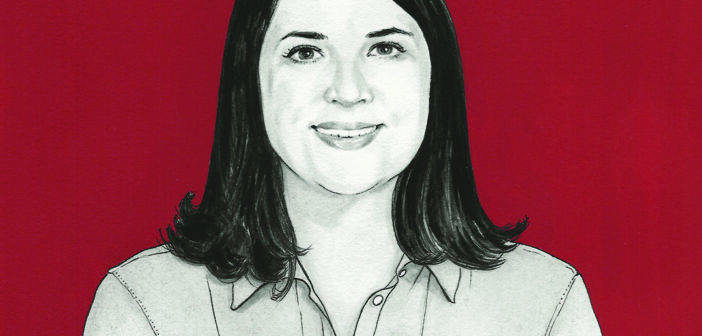How do we treat patients with long COVID?
Infectious diseases specialist Jennie Johnson F’18, MD, is the director of the Lifespan Lyme and Tick Borne Infections Center, where her experience managing patients with post-treatment Lyme disease syndrome prepared her for a newer mystery, long COVID. She’s also an assistant professor of medicine at Brown and assistant medical director of the Infectious Diseases and Immunology Center at The Miriam Hospital, which opened a long COVID clinic in November 2020. Johnson says though not much is understood about this complex condition, the key to treating it is cross-disciplinary collaboration.
There’s a wide range of reasons why people develop persistent symptoms after their initial COVID-19 infection. Some symptoms are related to pre-existing conditions worsened or unmasked by COVID. Some are due to direct organ damage from the virus. The most difficult to address are non-specific debilitating symptoms like persistent fatigue and cognitive impairment, with normal lung imaging cardiac function. We knew we would need the help of other specialists, given the complexity and heterogeneity of the symptoms. We went to the pulmonary department, cardiology, neurology, physical therapy, just to name a few, so that we had people that we could refer patients to.
Since many symptoms are non-specific and can occur with a whole host of other diseases, we require a history of a positive COVID test or positive antibodies seen only from natural infection. In our initial evaluation we take their medical history, including their initial infection: did they require hospitalization, have complications such as renal failure or cardiac involvement, prolonged ventilation? This gives us clues to the underlying cause.
Nobody knows the long-term prognosis. Fortunately for the majority of people I have seen, it’s a very slow march toward feeling better. A very few have stagnated and haven’t really felt better. A lot of them were previously healthy and highly functional, and it’s very difficult to go from that to not being able to do the things that they could do before getting COVID. We have social workers at our clinic because there’s a whole psychological component to long COVID; it’s not just the body that suffers.
We’re very open with patients about what we know and what we don’t. No one type of physician could do this alone. It would be truly impossible. Fortunately we asked for help and we got it.




